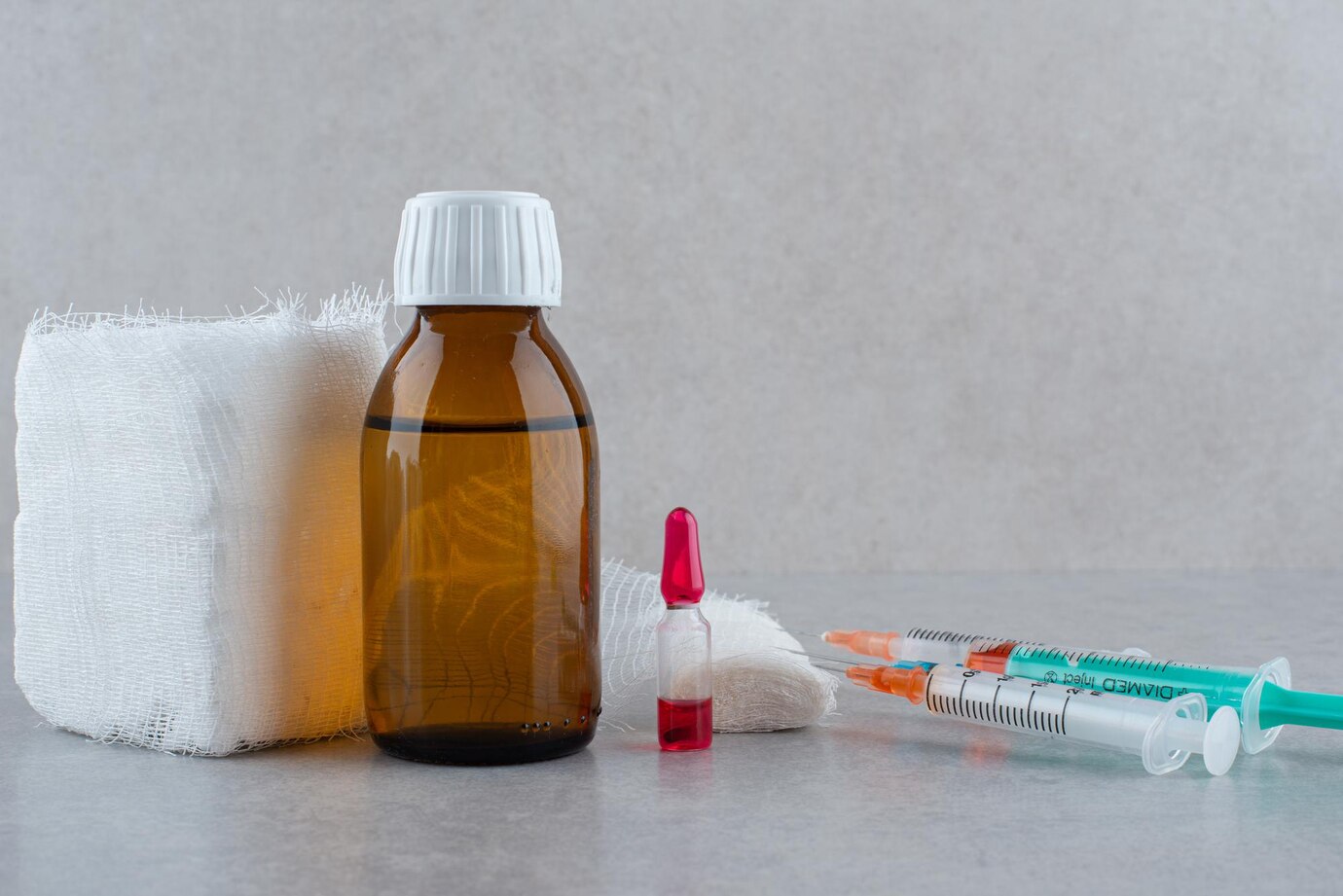MGP Cough Syrup is a widely used over-the-counter medication designed to provide relief from cough and related respiratory symptoms. It is often recommended for both dry and productive (wet) coughs, depending on its formulation. The “MGP” in the name does not refer to a standard set of ingredients across all brands, but many MGP cough syrups contain a combination of expectorants, antitussives (cough suppressants), mucolytics, and sometimes antihistamines or decongestants. The specific composition may vary slightly from one manufacturer to another, but the goal is generally the same: to provide comprehensive relief from cough and cold symptoms.
Composition
While there may be some variation in the formulation, a typical MGP Cough Syrup may contain the following active ingredients:
- Dextromethorphan Hydrobromide – A common cough suppressant that acts on the cough center in the brain to reduce the urge to cough. It is particularly effective in treating dry, hacking coughs.
- Guaifenesin – An expectorant that helps loosen mucus in the airways, making it easier to cough up and expel. It’s especially useful in treating productive coughs associated with colds or bronchitis.
- Phenylephrine or Pseudoephedrine – These decongestants may be included to reduce nasal and sinus congestion, allowing for easier breathing.
- Chlorpheniramine Maleate or Diphenhydramine – These antihistamines are often included to relieve allergic symptoms such as sneezing, runny nose, and watery eyes. They also have a mild sedative effect, which can help patients rest better when sick.
- Menthol or Herbal Extracts (in some formulations) – Menthol provides a soothing cooling effect on the throat and can reduce irritation that triggers coughing. Some syrups may include natural ingredients like tulsi, honey, or ginger for added benefits.
Indications
MGP Cough Syrup is indicated for the symptomatic relief of:
- Dry cough
- Productive cough (with mucus)
- Cough associated with upper respiratory tract infections
- Allergic cough
- Bronchitis-related cough
- Throat irritation
It provides both immediate and longer-lasting relief, depending on the ingredients used.
Dosage and Administration
The dosage of MGP Cough Syrup depends on the age of the patient, the severity of symptoms, and the specific formulation. However, general dosage guidelines are as follows:
- Adults and children over 12 years: 10 ml every 4–6 hours, not exceeding 4 doses in 24 hours.
- Children 6–12 years: 5 ml every 4–6 hours, under medical supervision.
- Children under 6 years: Should only be used if prescribed by a pediatrician.
It is essential to shake the bottle well before use and measure the dose with a proper measuring cup or spoon. Do not exceed the recommended dosage to avoid side effects or overdose.
Precautions and Contraindications
Before using MGP Cough Syrup, patients should inform their doctor if they have:
- Asthma or other chronic respiratory diseases
- Glaucoma
- High blood pressure
- Heart disease
- Diabetes
- Thyroid problems
- A history of allergic reactions to any medications
The syrup may cause drowsiness, especially if it contains antihistamines or sedatives. Therefore, it is advised not to drive or operate machinery after taking it. Alcohol consumption should also be avoided.
Pregnant or breastfeeding women should consult a physician before using MGP Cough Syrup.
Side Effects
While MGP Cough Syrup is generally well-tolerated, some individuals may experience mild side effects such as:
- Drowsiness or dizziness
- Dry mouth or throat
- Nausea or upset stomach
- Allergic reactions (rare)
If any severe reaction occurs, such as difficulty breathing, rash, or swelling, medical attention should be sought immediately.
Conclusion
MGP Cough Syrup is a reliable and accessible option for relieving various types of cough and cold symptoms. Its multi-action formula makes it effective for both dry and wet coughs, helping patients recover comfortably. However, like all medications, it should be used responsibly and according to medical guidance to ensure safety and effectiveness.









